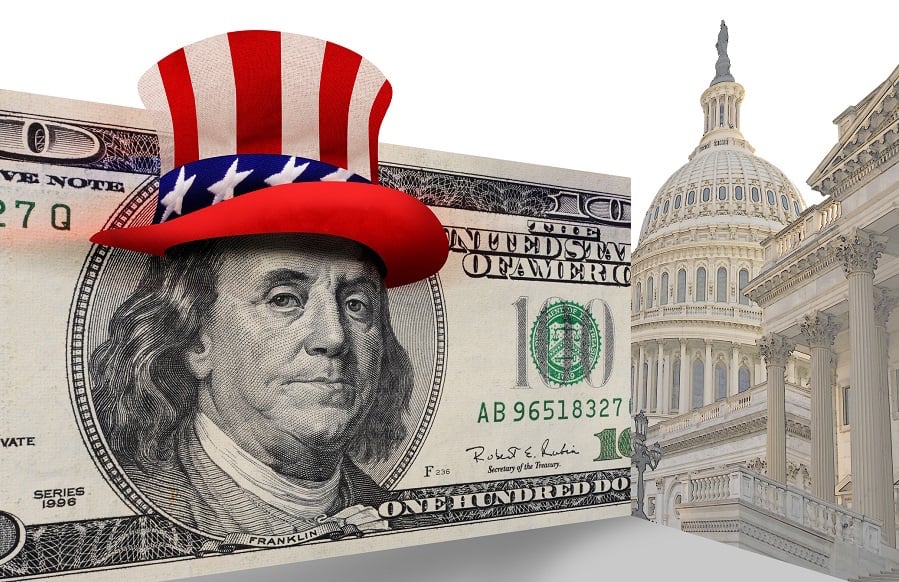

Major financial firms and the trade associations representing them are once again overwhelming investment adviser organizations and investor advocates organization in political spending.
But they say they’re making inroads on Capitol Hill through educating lawmakers about their position on investment advice policy.
As is the case in every election cycle, Wall Street is opening its wallet wide to contribute to political campaigns, according to Federal Election Commission filings.
For the 2020 election cycle so far, the top financial firm spenders include UBS Americas ($1.9 million), Morgan Stanley ($958,500), Goldman Sachs ($858,500), TIAA ($829,000), LPL Financial ($617,700), Charles Schwab ($452,000), Vanguard Group ($442,500), Ameriprise financial ($263,500) and Edwards Jones ($168,100).
Trade associations representing financial services firms also are spending heavily. The Investment Company Institute, which represents the mutual fund industry, has donated $1.6 million. Other groups include the Securities Industry and Financial Markets Association ($448,500) and the Financial Services Institute ($177,000).
Investment adviser organizations and investor advocates, however, spend much less on campaigns. The Investment Adviser Association has contributed $38,000, while the Financial Planning Association has made $32,500 in donations and the Consumer Federation of America has contributed $12,000.
Despite being outgunned on campaign spending, which can be crucial in building relationships with lawmakers, one investor advocate said they’re succeeding in spreading the word about the importance of fiduciary duty on Capitol Hill, especially among Democratic lawmakers.
Ron Rhoades, associate professor of finance at Western Kentucky University, points to the growing number of Democrats opposing the Securities and Exchange Commission’s Regulation Best Interest and a recent Department of Labor advice rule.
“It’s led to a much greater awareness of what the fiduciary standard is and how it’s been diminished,” Rhoades said. “The message has been heard on Capitol Hill.”
That momentum could contribute to legislative and regulatory victories in battles against the financial industry even though investor advocates are losing the political spending war.

While industry statistics pointing to a succession crisis can cause alarm, advisor-owners should be free to consider a middle path between staying solo and catching the surging wave of M&A.

New joint research by T. Rowe Price, MIT, and Stanford University finds more diverse asset allocations among older participants.

With its asset pipeline bursting past $13 billion, Farther is looking to build more momentum with three new managing directors.

A Department of Labor proposal to scrap a regulatory provision under ERISA could create uncertainty for fiduciaries, the trade association argues.

"We continue to feel confident about our ability to capture 90%," LPL CEO Rich Steinmeier told analysts during the firm's 2nd quarter earnings call.
Orion's Tom Wilson on delivering coordinated, high-touch service in a world where returns alone no longer set you apart.
Barely a decade old, registered index-linked annuities have quickly surged in popularity, thanks to their unique blend of protection and growth potential—an appealing option for investors looking to chart a steadier course through today's choppy market waters, says Myles Lambert, Brighthouse Financial.
